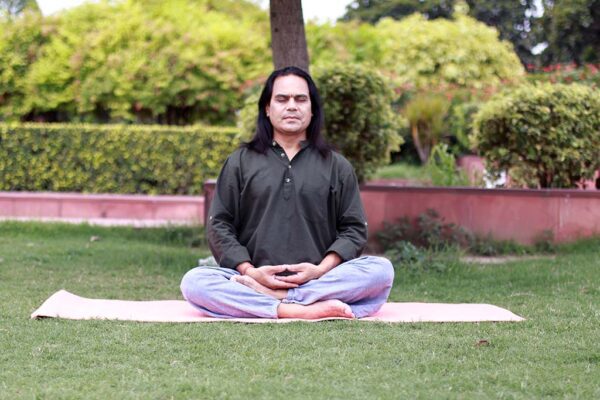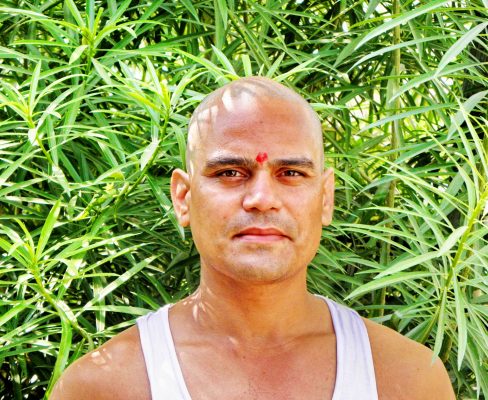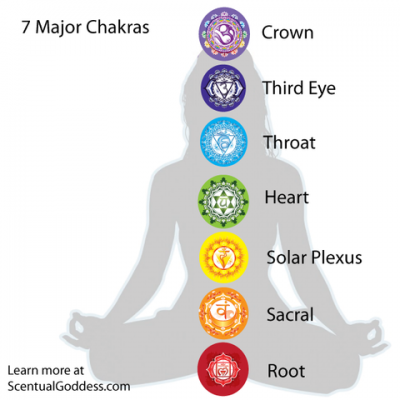Intolerance can be hazardous to an individual and a society. This damages the peace, harmony, love, abundance, and happiness prevailed in the society.
In this article, we would explore different aspects of TOLERANCE, and its neighboring factors – understanding, acceptance, empathy, love, etc., so, read this entire article till the end, and enhance your knowledge about them.
And yes, would love to see your comments in the comment box, given at the end.
Tolerance, like love, is a fundamental aspect of our moral and ethical code. It is the willingness to tolerate others’ attitudes, beliefs, customs, tradition, mode of behavior, and physical disabilities. Tolerance is often equated with open-mindedness, but it has two essential distinctions: tolerance for differences and acceptance of differences.

The first major distinction is between tolerance for differences and acceptance of differences. There has been previous empirical research on this question. The results are not all consistent, nor do the interpretive methods used by researchers support the broad categorization. Generally, when a sample is analyzed to identify the level of tolerance for differences that exist, results vary by sampled area, country, age, sex, etc. Thus, it appears that there is some inconsistency among these categories.
For instance, tolerance of religious differences is high in the some countries of the world like India, United States, UK, France, Australia, Sweden, New Zealand, Denmark, Belgium, and Norway, while many other nations do not tolerate religious tolerance. Similarly, tolerance of sexual views is very high in the United States and other developed nations, while tolerance of government religious beliefs is low. Religious tolerance is the “overall index of tolerance,” with lower tolerance the better indicator of societal tolerance. Of course, tolerance and acceptance of diverse opinions exist throughout the world. Differences in opinion are to be expected in a democratic society.
Then, tolerance and acceptance of differences also occur along some key dimensions. Among these dimensions are attitudes about gender, ethnicity, immigration status, age, religion, sexual orientation, and other categories. Some of the most intriguing dimensions to follow are race and ethnicity tolerance. Some areas of the world have more tolerance for differences among these groups than others. In the United States, for example, people of European descent have the highest tolerance for differences in gender and ethnicity, but women and racial/ethnic minorities have been less likely to have a higher tolerance than men. People who are young, single, and without children are also likely to have higher tolerance levels.
Adults also demonstrate greater tolerance and acceptance of differences than younger adults. More of them teach tolerance and acceptance of diverse cultures, beliefs, and opinions. They also work on ways to relate to and build relationships with others within the same religious or ethnic background. This could include attending interfaith prayer services, participating in cultural events, joining other groups in hopes of learning more about their differences, and working to reduce prejudice or stereotypes. Teaching tolerance and respect may come naturally enough, but it will help to build on these relationships in order to fully realize the benefits.
The willingness to accept other’s beliefs who differ from themselves is a crucial part of having a tolerant and accepting attitude. It doesn’t hurt to be careful, though. Tolerance and acceptance don’t always come easy. Some people may react with prejudice and discrimination. A person with a more permissive attitude toward differences may not even know how to explain his or her own beliefs.

When a person has a strong tolerance for differences and willingness to share with those who differ from themselves, he or she may also be open to new experiences. This could be related to having an Out-of-World perspective or a different cultural lens through which to view the world. This could help in the building of ties within a community, between groups, or with the society as a whole. A tolerant person could be expected to be open-minded and willing to embrace a new idea if it appears to be worth trying.
The ability to analyze differences and find creative solutions, as well as the ability to disregard personal prejudices are qualities that are required to form a tolerant and accepting individual. The willingness to accept and respect other’s differences is also related to the ability to empathize with others. Individuals who cannot empathize well are unlikely to be open to new ideas. Those who cannot tolerate others’ prejudice, are often closed-minded to new perspectives. Individuals who exhibit these traits are usually best described as-analytically distinct, preferdring to look at things in a way that avoids prejudice rather than experience it.
Comparing And Analyzing Tolerance And Prejudice

Tolerance, like love, is a fundamental aspect of our moral and ethical code. It is the willingness to tolerate others’ attitudes, beliefs, customs, tradition, mode of behavior, and physical disabilities. Tolerance is often equated with open-mindedness, but it has two essential distinctions: tolerance for differences and acceptance of differences.
The first major distinction is between tolerance for differences and acceptance of differences. There has been previous empirical research on this question. The results are not all consistent, nor do the interpretive methods used by researchers support the broad categorization. Generally, when a sample is analyzed to identify the level of tolerance for differences that exist, results vary by sampled area, country, age, sex, etc. Thus, it appears that there is some inconsistency among these categories.
For instance, tolerance of religious differences is high in the United States, while many other nations do not tolerate religious tolerance. Similarly, tolerance of sexual views is very high in the United States and other developed nations, while tolerance of government religious beliefs is low. Religious tolerance is the “overall index of tolerance,” with lower tolerance the better indicator of societal tolerance. Of course, tolerance and acceptance of diverse opinions exist throughout the world. Differences in opinion are to be expected in a democratic society.
Then, tolerance and acceptance of differences also occur along some key dimensions. Among these dimensions are attitudes about gender, ethnicity, immigration status, age, religion, sexual orientation, and other categories. Some of the most intriguing dimensions to follow are race and ethnicity tolerance. Some areas of the world have more tolerance for differences among these groups than others. In the United States, for example, people of European descent have the highest tolerance for differences in gender and ethnicity, but women and racial/ethnic minorities have been less likely to have a higher tolerance than men. People who are young, single, and without children are also likely to have higher tolerance levels.
Adults also demonstrate greater tolerance and acceptance of differences than younger adults. More of them teach tolerance and acceptance of diverse cultures, beliefs, and opinions. They also work on ways to relate to and build relationships with others within the same religious or ethnic background. This could include attending interfaith prayer services, participating in cultural events, joining other groups in hopes of learning more about their differences, and working to reduce prejudice or stereotypes. Teaching tolerance and respect may come naturally enough, but it will help to build on these relationships in order to fully realize the benefits.
The willingness to accept other’s beliefs who differ from themselves is a crucial part of having a tolerant and accepting attitude. It doesn’t hurt to be careful, though. Tolerance and acceptance don’t always come easy. Some people may react with prejudice and discrimination. A person with a more permissive attitude toward differences may not even know how to explain his or her own beliefs.
When a person has a strong tolerance for differences and willingness to share with those who differ from themselves, he or she may also be open to new experiences. This could be related to having an Out-of-World perspective or a different cultural lens through which to view the world. This could help in the building of ties within a community, between groups, or with the society as a whole. A tolerant person could be expected to be open-minded and willing to embrace a new idea if it appears to be worth trying.
The ability to analyze differences and find creative solutions, as well as the ability to disregard personal prejudices are qualities that are required to form a tolerant and accepting individual. The willingness to accept and respect other’s differences is also related to the ability to empathize with others. Individuals who cannot empathize well are unlikely to be open to new ideas. Those who cannot tolerate others’ prejudice, are often closed-minded to new perspectives. Individuals who exhibit these traits are usually best described as analytically distinct, preferring to look at things in a way that avoids prejudice rather than experience it.
Why we should develop tolerance?

The Psychology of Tolerance is one of the most important questions we must ask ourselves as our world and civilization becomes more volatile. From a small isolated island at the tip of South America to the modern world we have wars, religious intolerance, ethnic violence, and the list goes on. So why do we tolerate all of this?
I believe that we have a genuine responsibility to show other peoples’ tolerance. Without it we will cease to exist. When people are ready to take on the world as we are and view things from a different perspective, they can help us grow. This is why I believe tolerance is necessary. If we fail to develop it, we will cease to be a world civilization and instead will become part of a pack of dogs competing for blood.
But why do we should develop tolerance in the first place? Why do we have to allow people into our society who would not accept other people in their land? Are we not a just and fair society? And if we are not then why are we allowing other people to take advantage of us when they clearly can’t tolerate?
Tolerance means accepting others the way they are, with all their flaws, and not being offended by them. It is also about showing respect to those who cannot accept us for who we are. People who are strong in their own religions and heritage and have the courage to understand the differences between those two different paths are the ones that can truly understand human rights. Those who are weak in their own religion and culture and don’t understand these basic differences will usually turn their back on the people who follow these religions and are respected worldwide.
A lot of times we understand someone better when they are standing beside us in the store and don’t feel intimidated. Some people are very understanding and they are able to see past the petty disagreements some of us could get into. They are able to see the differences even when it’s between a Black man and a white woman, or a Hindu and a Christian. Most of the time we will never be able to understand a person fully because of these blind points of differences. We must find a way to transcend those points of difference.
Tolerance means accepting other peoples’ religions, cultures, and thoughts as is. This is not only acceptable but necessary when it comes to the different belief systems and customs of different regions of the world. Some people in one region will practice a certain ritual or belief and this is completely fine while another region will not and it will create problems between the two regions. Religious intolerance and hostility toward another will only cause more problems.
The world needs to learn to move forward instead of looking for reasons to attack, fight, and dominate. History has shown that when people have a sense of unity and love towards their fellow man, then they can do great things. We all want to help each other and create a better world for our children. It makes no sense to go and destroy a future with a peaceful, tolerant, and understanding person; you will only destroy your own credibility. Why do we need to develop tolerance for others when we ourselves cannot tolerate others’ views?
Education is the key to ending the conflicts and to ending intolerance. Education will help us understand how important it is to respect all different belief systems. Education will help us to accept all different cultures and belief systems as something positive that will benefit our world. Education will also help us develop a sense of responsibility and patriotism. It will teach us to live as good Americans first and always second.
Tolerance is Strength

The Psychology of Tolerance is one of the most important questions we must ask ourselves as our world and civilization becomes more volatile. From a small isolated island at the tip of South America to the modern world we have wars, religious intolerance, ethnic violence, and the list goes on. So why do we tolerate all of this?
I believe that we have a genuine responsibility to show other peoples’ tolerance. Without it we will cease to exist. When people are ready to take on the world as we are and view things from a different perspective, they can help us grow. This is why I believe tolerance is necessary. If we fail to develop it, we will cease to be a world civilization and instead will become part of a pack of dogs competing for blood.
But why do we should develop tolerance in the first place? Why do we have to allow people into our society who would not accept other people in their land? Are we not a just and fair society? And if we are not then why are we allowing other people to take advantage of us when they clearly can’t tolerate?
Tolerance means accepting others the way they are, with all their flaws, and not being offended by them. It is also about showing respect to those who cannot accept us for who we are. People who are strong in their own religions and heritage and have the courage to understand the differences between those two different paths are the ones that can truly understand human rights. Those who are weak in their own religion and culture and don’t understand these basic differences will usually turn their back on the people who follow these religions and are respected worldwide.
A lot of times we understand someone better when they are standing beside us in the store and don’t feel intimidated. Some people are very understanding and they are able to see past the petty disagreements some of us could get into. They are able to see the differences even when it’s between a Black man and a white woman, or a Hindu and a Christian. Most of the time we will never be able to understand a person fully because of these blind points of differences. We must find a way to transcend those points of difference.
Tolerance means accepting other peoples’ religions, cultures, and thoughts as is. This is not only acceptable but necessary when it comes to the different belief systems and customs of different regions of the world. Some people in one region will practice a certain ritual or belief and this is completely fine while another region will not and it will create problems between the two regions. Religious intolerance and hostility toward another will only cause more problems.
The world needs to learn to move forward instead of looking for reasons to attack, fight, and dominate. History has shown that when people have a sense of unity and love towards their fellow man, then they can do great things. We all want to help each other and create a better world for our children. It makes no sense to go and destroy a future with a peaceful, tolerant, and understanding person; you will only destroy your own credibility. Why do we need to develop tolerance for others when we ourselves cannot tolerate others’ views?
Education is the key to ending the conflicts and to ending intolerance. Education will help us understand how important it is to respect all different belief systems. Education will help us to accept all different cultures and belief systems as something positive that will benefit our world. Education will also help us develop a sense of responsibility and patriotism. It will teach us to live as good Americans first and always second.
Empathy and Tolerance

The Psychology of Tolerance is one of the most important questions we must ask ourselves as our world and civilization becomes more volatile. From a small isolated island at the tip of South America to the modern world we have wars, religious intolerance, ethnic violence, and the list goes on. So why do we tolerate all of this?
I believe that we have a genuine responsibility to show other peoples’ tolerance. Without it we will cease to exist. When people are ready to take on the world as we are and view things from a different perspective, they can help us grow. This is why I believe tolerance is necessary. If we fail to develop it, we will cease to be a world civilization and instead will become part of a pack of dogs competing for blood.
But why do we should develop tolerance in the first place? Why do we have to allow people into our society who would not accept other people in their land? Are we not a just and fair society? And if we are not then why are we allowing other people to take advantage of us when they clearly can’t tolerate?
Tolerance means accepting others the way they are, with all their flaws, and not being offended by them. It is also about showing respect to those who cannot accept us for who we are. People who are strong in their own religions and heritage and have the courage to understand the differences between those two different paths are the ones that can truly understand human rights. Those who are weak in their own religion and culture and don’t understand these basic differences will usually turn their back on the people who follow these religions and are respected worldwide.
A lot of times we understand someone better when they are standing beside us in the store and don’t feel intimidated. Some people are very understanding and they are able to see past the petty disagreements some of us could get into. They are able to see the differences even when it’s between a Black man and a white woman, or a Hindu and a Christian. Most of the time we will never be able to understand a person fully because of these blind points of differences. We must find a way to transcend those points of difference.
Tolerance means accepting other peoples’ religions, cultures, and thoughts as is. This is not only acceptable but necessary when it comes to the different belief systems and customs of different regions of the world. Some people in one region will practice a certain ritual or belief and this is completely fine while another region will not and it will create problems between the two regions. Religious intolerance and hostility toward another will only cause more problems.
The world needs to learn to move forward instead of looking for reasons to attack, fight, and dominate. History has shown that when people have a sense of unity and love towards their fellow man, then they can do great things. We all want to help each other and create a better world for our children. It makes no sense to go and destroy a future with a peaceful, tolerant, and understanding person; you will only destroy your own credibility. Why do we need to develop tolerance for others when we ourselves cannot tolerate others’ views?
Education is the key to ending the conflicts and to ending intolerance. Education will help us understand how important it is to respect all different belief systems. Education will help us to accept all different cultures and belief systems as something positive that will benefit our world. Education will also help us develop a sense of responsibility and patriotism. It will teach us to live as good Americans first and always second.
Acceptance

The Psychology of Tolerance is one of the most important questions we must ask ourselves as our world and civilization becomes more volatile. From a small isolated island at the tip of South America to the modern world we have wars, religious intolerance, ethnic violence, and the list goes on. So why do we tolerate all of this?
I believe that we have a genuine responsibility to show other peoples’ tolerance. Without it we will cease to exist. When people are ready to take on the world as we are and view things from a different perspective, they can help us grow. This is why I believe tolerance is necessary. If we fail to develop it, we will cease to be a world civilization and instead will become part of a pack of dogs competing for blood.
But why do we should develop tolerance in the first place? Why do we have to allow people into our society who would not accept other people in their land? Are we not a just and fair society? And if we are not then why are we allowing other people to take advantage of us when they clearly can’t tolerate?
Tolerance means accepting others the way they are, with all their flaws, and not being offended by them. It is also about showing respect to those who cannot accept us for who we are. People who are strong in their own religions and heritage and have the courage to understand the differences between those two different paths are the ones that can truly understand human rights. Those who are weak in their own religion and culture and don’t understand these basic differences will usually turn their back on the people who follow these religions and are respected worldwide.
A lot of times we understand someone better when they are standing beside us in the store and don’t feel intimidated. Some people are very understanding and they are able to see past the petty disagreements some of us could get into. They are able to see the differences even when it’s between a Black man and a white woman, or a Hindu and a Christian. Most of the time we will never be able to understand a person fully because of these blind points of differences. We must find a way to transcend those points of difference.
Tolerance means accepting other peoples’ religions, cultures, and thoughts as is. This is not only acceptable but necessary when it comes to the different belief systems and customs of different regions of the world. Some people in one region will practice a certain ritual or belief and this is completely fine while another region will not and it will create problems between the two regions. Religious intolerance and hostility toward another will only cause more problems.
The world needs to learn to move forward instead of looking for reasons to attack, fight, and dominate. History has shown that when people have a sense of unity and love towards their fellow man, then they can do great things. We all want to help each other and create a better world for our children. It makes no sense to go and destroy a future with a peaceful, tolerant, and understanding person; you will only destroy your own credibility. Why do we need to develop tolerance for others when we ourselves cannot tolerate others’ views?
Education is the key to ending the conflicts and to ending intolerance. Education will help us understand how important it is to respect all different belief systems. Education will help us to accept all different cultures and belief systems as something positive that will benefit our world. Education will also help us develop a sense of responsibility and patriotism. It will teach us to live as good Americans first and always second.
Tolerance and Acceptance

In order to understand tolerance and acceptance, we need to first define these terms clearly and precisely. Tolerance is a receptive, objective, and open attitude toward people whose ideas, beliefs, practices, national, ethnic, cultural, sexual identity, etc., vary from one’s own. Acceptance is the voluntary surrender by a reasonable person of his convictions about something (usually a negative or undesirable situation). The two are usually used interchangeably; tolerance, however, signifies a more negotiable attitude and more than just toleration. Acceptance involves a certain degree of flexibility in responding to a variety of different religious, national, linguistic, cultural, and other pressures.
When tolerating another’s unacceptable view, behavior, practice, or opinions you are said to ‘accept’ them as a whole – i.e., accept all that they believe, do, and are. Those who oppose such people’s opinions and practices would call them ‘condemns’ or ‘reproaches.’ To tolerate someone’s conduct, which you strongly disapprove of, but which may be required by the given circumstances, would be to tolerate or agree with that person’s ideas, beliefs, practices, and opinions – i.e., ‘ondoning.’ Political correctness has warped our language to the point of using acceptable and unacceptable words in relation to all subjects; tolerating someone’s intolerance is one way of saying,” tolerate my views,” or, “give me your intolerances.” In political correctness, it is permissible to criticize someone else’s conduct as offensive even when it is completely false, whereas in normal usage, you should always take the high road and defend somebody’s right to be intolerant, unproductive, and unreasonable.
It’s not easy to defend someone’s right to be intolerant, unproductive, unreasonable, and offensive. The best that you can do is: refuse to tolerate it and defend his/her right to do so. Otherwise, you may find yourself defending every act of prejudice, intolerance, unbalanced behavior, and ineffective practice, rather than tolerating it. If you have not yet learned how to do that, then learn it – learn to oppose, don’t merely complain, call others on their hypocrisy, and oppose those who oppose progress, creativity, and good ideas – rather than tolerate their bad ideas, beliefs, practice, and conduct.
Tolerance and Love

For those who do not fully understand what tolerance and love is, let me shed some light. Love is not tolerance is not love. Love is a commitment to share all that we have learned and know with another. The journey of tolerance is simply walking the journey toward wholeness.
My favorite quote from Dr. Martin Luther King, Jr., “Tolerance means accepting people of different cultures, religions, thoughts, and opinions. Love makes room for different thought but accepts the people you cannot tolerate.” The above quote is a great example of how love abounds even in the worst of times and situations. In order to move beyond intolerance and continue on the journey of tolerance, it is necessary to find the balance between tolerance and love. It is important to stand firm on what is right and defend those ideals that are vital to your individual growth as a human being.
It is important that we, as people of conscience to stand up for the values of freedom, democracy, justice, equality, and respect for all that we hold dear. When we fail to do so, our society will be threatened by religious intolerance and various forms of communal hate. We need to choose to walk the communal level when it is politically correct or walk the other way when it is morally wrong. It is time to put the interest of mankind before the selfish interest of self and stand up for what is right.
Conclusion
Humanity has reached a level of technological advancement that seems to be unachievable without the application of the use of advanced weaponry and the resulting mass killing in war. Although war has been inevitable in the past centuries, it is not possible for humans to kill each other through the use of guns and other weapons without some form of tolerance, mutual understanding and respect as well as a certain amount of flexibility in dealing with one another. Thus, if we are to survive the constant battles that will surface in the future, we have to come to a place where we can tolerate others differences, but also learn to respect their differences, and learn to honor each other’s individuality as well.
If we are to discover how tolerance can enhance humanity, we will have to go beyond what most individuals understand to be acceptable, and start to think in terms of how we can create a more community-oriented perspective in which people can understand and agree with one another. Although there may be those who will disagree, it would be foolish for those who hold a dissenting opinion to allow the disagreement to destroy the potential for a peaceful society. Instead, it would be wise for those who are divided to sit down and have a very serious and honest discussion about the issues at hand.
Indeed, it would seem that tolerance is a very important ingredient in the making of a peaceful and happy society. In fact, it seems as if tolerance is the foundation upon which all of our societal goals and objectives rest. Therefore, the question “How can tolerance enhance humanity?” is very much worthy of an answer. Please consider all this.
Please share, if you liked this.

















